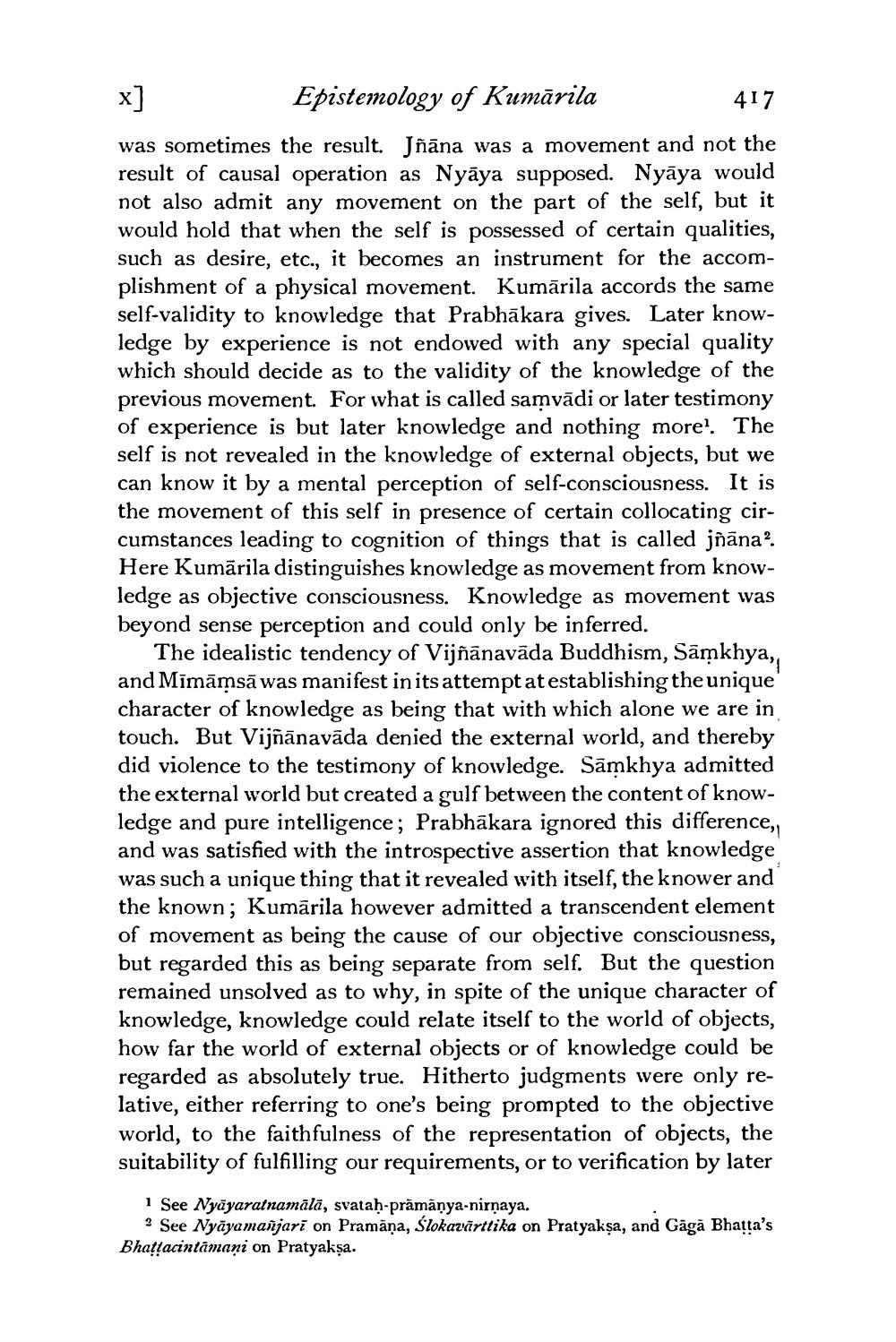________________
Epistemology of Kumārila
417
was sometimes the result. Jñāna was a movement and not the result of causal operation as Nyāya supposed. Nyāya would not also admit any movement on the part of the self, but it would hold that when the self is possessed of certain qualities, such as desire, etc., it becomes an instrument for the accomplishment of a physical movement. Kumārila accords the same self-validity to knowledge that Prabhākara gives. Later knowledge by experience is not endowed with any special quality which should decide as to the validity of the knowledge of the previous movement. For what is called samvādi or later testimony of experience is but later knowledge and nothing more? The self is not revealed in the knowledge of external objects, but we can know it by a mental perception of self-consciousness. It is the movement of this self in presence of certain collocating circumstances leading to cognition of things that is called jñāna?. Here Kumārila distinguishes knowledge as movement from knowledge as objective consciousness. Knowledge as movement was beyond sense perception and could only be inferred.
The idealistic tendency of Vijñānavāda Buddhism, Sāmkhya,, and Mīmāmsā was manifest in its attempt at establishing the unique character of knowledge as being that with which alone we are in touch. But Vijñānavāda denied the external world, and thereby did violence to the testimony of knowledge. Samkhya admitted the external world but created a gulf between the content of knowledge and pure intelligence; Prabhākara ignored this difference, and was satisfied with the introspective assertion that knowledge was such a unique thing that it revealed with itself, the knower and the known; Kumārila however admitted a transcendent element of movement as being the cause of our objective consciousness, but regarded this as being separate from self. But the question remained unsolved as to why, in spite of the unique character of knowledge, knowledge could relate itself to the world of objects, how far the world of external objects or of knowledge could be regarded as absolutely true. Hitherto judgments were only relative, either referring to one's being prompted to the objective world, to the faithfulness of the representation of objects, the suitability of fulfilling our requirements, or to verification by later
1 See Nyāyaratnamālā, svatah-prāmãnya-nirnaya.
? See Nyāyamañjari on Pramāņa, slokavārttika on Pratyakşa, and Gāgā Bhatta's Bhattacintamani on Pratyakşa.




